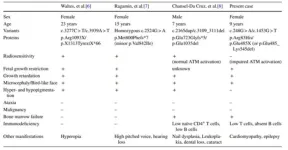(Press-News.org) Cerebral edema, the dangerous brain swelling that occurs after traumatic brain injury (TBI), can increase risk of death tenfold and significantly worsen prospects for recovery in brain function. In extreme cases, surgeons will remove a portion of the skull to relieve pressure, but this has significant risks and is not viable for the vast majority of TBI cases. Physicians have very few tools at their disposal that are effective in treating cerebral edema, which is one of the leading causes of in-hospital deaths, and is associated with long-term neurological disability.
New research appearing today in the journal Nature could change all that, showing that a cocktail of drugs already approved to treat high blood pressure quickly reduces brain swelling and improves outcomes in animal models of brain injury.
“Our research shows that cerebral edema is the consequence of impaired fluid flow through the glymphatic system and its associated lymphatic drainage,” said Maiken Nedergaard, MD, DMSc, co-director of the University of Rochester Center for Translational Neuromedicine and senior author of the study. “This impairment is under adrenergic control, and can therefore be rescued pharmacologically by broadly inhibiting adrenergic receptors. Because these drugs are already being used clinically and have observed neurological benefits, there is the potential to move quickly to clinical studies to confirm these findings.”
Manipulating fluid flows in the brain to release post-TBI brain pressure
The glymphatic system was first described by Nedergaard’s lab in 2012 as the brain’s unique waste removal process. Since then, a growing understanding of the mechanics of the system–aided by advanced imaging technologies and AI-driven models of fluid dynamics—has allowed researchers to better predict and manipulate the movement of cerebrospinal fluid (CSF) in the central nervous system. This research has opened new possibilities to treat Alzheimer’s and other neurological disorders and more effectively deliver and distribute drugs in the central and peripheral nervous system, including the inner ear.
The new study points to the potential to repurpose the glymphatic system to act as an emergency pressure release valve. Cerebral edema is a common consequence of moderate and severe cases of TBI. “In other parts of the body, edema helps with tissue repair, but because of the skull, the brain has limited capacity for expansion. As a result, pressure increases, blood supply decreases, and debris and toxic proteins are trapped at the injury site, compounding the damage and impairing recovery,” said Rashad Hussain, PhD, an assistant professor in the Center for Translational Neuromedicine and first author of the study.
One of the main triggers of cerebral edema is noradrenaline, a neurotransmitter that floods the brain immediately after TBI. Noradrenaline is typically associated with the flight-or-fight response, but in TBI this “adrenergic storm” impairs the flow of CSF in and out of the brain.
The researchers describe how noradrenaline interferes with the function of the glymphatic system. Specifically, it restricts the movement of fluid through the section of the system’s plumbing where CSF drains from the brain and flows into the meningeal and cervical lymph nodes in the neck. This observation led the team to speculate whether reopening these gates to the lymph nodes could flush excess CSF from the brain, thereby relieving pressure.
Blood pressure medications suppress adrenaline “storm” and restart fluid flow
To accomplish this, the team used a cocktail of drugs, including prazosin, atipamezole, and propranolol. This combination of alpha- and beta-blockers collectively suppress the different receptors used by cells to take up noradrenaline. Previous research in Nedergaard’s lab has shown that this combination of drugs ramps up the glymphatic system, replicating the level of activity experienced when we sleep, which is when the system is most efficient in manipulating CSF flow to remove waste.
In the new study, the same drug cocktail was administered to mice soon after TBI. Using fluorescent microspheres, the researchers traced CSF originating from the site of the swelling as it exited in bulk from the brain via lymphatic vessel, carrying with it debris from the injury to the lymph nodes. The result was an almost immediate elimination of cerebral edema and a sustained return to normal intracranial pressure in the animals. The treatment resulted significant recovery of cognitive, behavioral, and motor function.
“These findings show that the adrenergic storm, the resulting edema and intracranial pressure, and retention of neural debris, can all be reversed by broad adrenergic inhibition, with subsequent improvement in recovery in injured mice,” said Nedergaard.
The authors point to several clinical studies that demonstrate the safety profiles and observed neurological benefits of these drugs, early indications that this approach could also benefit humans. Atipamezole reduces post-traumatic seizures, prazosin is effective in treating the post-traumatic stress associated with TBI, and beta-blockers reduce in-hospital mortality and improve functional outcome of TBI patients. Additionally, Nedergaard and her colleagues at the University of Copenhagen have shown that individuals who take beta-blockers for hypertension are at lower risk for Alzheimer’s.
Additional co-authors in the study include: Jeffrey Tifhof, Wei Wang, Arokoruba Cheetham-West, Wei Song, Weiguo Peng, Qian Sun, Sisi Peng, and Doug Kelley with the University of Rochester; Bjorn Sigurdsson and Pia Weikop with the University of Copenhagen; Virginia Pla, Hajime Hirase and Steve Goldman with both with the Universities of Rochester and Copenhagen; Daeyun Kim with the University of Minnesota; Jorge Castorena-Gonzalez with the Tulane University; and Michael Davis with the University of Missouri. The research was supported with funding from the Dr. Miriam and Sheldon G. Adelson Medical Research Foundation, the National Institute of Neurological Disorders and Stroke, the Burroughs Wellcome Fund, the Joint Programme—Neurodegenerative Disease Research, the Novo Nordisk Foundation, the Lundbeck Foundation, and the US Army Research Office.
END
Pulling the plug on brain injury: manipulating fluid flows could save lives, improve recovery post-TBI
2023-11-15
ELSE PRESS RELEASES FROM THIS DATE:
Completion of recommended tests and referrals in telehealth vs in-person visits
2023-11-15
About The Study: The findings of this study suggest that rates of completion for 4,133 diagnostic tests and referrals (colonoscopies, cardiac stress tests, and dermatology referrals) were low for all visit types but worse when ordered during telehealth visits. Failure to close diagnostic loops presents a patient safety challenge in primary care that may be of particular concern during telehealth encounters.
Authors: Maelys J. Amat, M.D., M.B.A., of Beth Israel Deaconess Medical Center in Boston, is the corresponding author.
To ...
Neighborhood disadvantage and autism spectrum disorder in a population with health insurance
2023-11-15
About The Study: Children residing in more disadvantaged neighborhoods at birth had higher likelihood of autism spectrum disorder (ASD) diagnosis in a study that included 318,000 children with health insurance. Future research is warranted to investigate the mechanisms behind the neighborhood-related disparities in ASD diagnosis, alongside efforts to provide resources for early intervention and family support in communities with a higher likelihood of ASD.
Authors: Daniel A. Hackman, Ph.D., of the University of Southern California in Los Angeles, is the corresponding author.
To access the embargoed study: Visit our For The Media website at this link https://media.jamanetwork.com/
(10.1001/jamapsychiatry.2023.4347)
Editor’s ...
Roaming seabirds need ocean-wide protection
2023-11-15
Seabirds roam far and wide in the Indian Ocean – so they need ocean-wide protection, new research shows.
All other oceans are known to contain “hotspots” where predators including seabirds feast on prey.
But the new study – by a team including Exeter, Heriot-Watt and Réunion universities, and ZSL – found no such concentrations in the Indian Ocean.
With seabirds facing numerous threats due to human activity, their survival depends on protecting the open ocean.
“Efforts are being made to protect key breeding colonies, but until now little was known about where Indian Ocean seabirds ...
New process for screening old urine samples reveals previously undetected ‘designer drugs’
2023-11-15
Researchers from the University of B.C. and the BC Provincial Toxicology Centre (BCPTC) have developed a more efficient way to find out which new ‘designer drugs’ are circulating in the community.
In a study published today in Analytical Chemistry, they showed how high-resolution mass spectrometry can be used to analyze urine samples at scale and uncover molecules from emerging designer drugs that have been missed by conventional testing.
The approach can support public health and safety by enabling swift identification of new substances, potentially saving lives and guiding timely clinical responses to drug-related ...
This 3D printer can watch itself fabricate objects
2023-11-15
With 3D inkjet printing systems, engineers can fabricate hybrid structures that have soft and rigid components, like robotic grippers that are strong enough to grasp heavy objects but soft enough to interact safely with humans.
These multimaterial 3D printing systems utilize thousands of nozzles to deposit tiny droplets of resin, which are smoothed with a scraper or roller and cured with UV light. But the smoothing process could squish or smear resins that cure slowly, limiting the types of materials that can be used.
Researchers from MIT, the MIT spinout Inkbit, and ETH Zurich have developed a new 3D inkjet printing system that works ...
A new kind of magnetism
2023-11-15
For a magnet to stick to a fridge door, inside of it several physical effects need to work together perfectly. The magnetic moments of its electrons all point in the same direction, even if no external magnetic field forces them to do so. This happens because of the so-called exchange interaction, a combination of electrostatic repulsion between electrons and quantum mechanical effects of the electron spins, which, in turn, are responsible for the magnetic moments. This is common explanation for the fact that certain materials like ...
Researchers identify the variants responsible for a rare and serious disorder
2023-11-15
A research team, led by Tokyo Medical and Dental University(TMDU), identifies disease-associated variants in a rare case of RAD50 deficiency/Nijmegen breakage syndrome-like disorder
Tokyo, Japan – Many disorders are caused by genetic variants; to make matters worse, the genetic origin of most disorders remains unknown. Now, in a study recently published in the Journal of Clinical Immunology, researchers have shed light on the specific variants responsible for one rare and serious disorder: ‘RAD50 deficiency/Nijmegen breakage syndrome-like ...
Do extracurricular activities always give children a head start? Research says maybe not
2023-11-15
In China, there is an old saying: "Don't let your children lose on the starting line." It highlights parents' desire to jumpstart their child's early development. Especially in recent years, parents have become increasingly anxious about their children's education, making it a trend to encourage children to participate in extracurricular activities from an early age. But is participating in extracurricular classes always advantageous for young children?
Recently, a study published in the Journal of School Psychology found that extracurricular activities don't always improve a child's skills or behaviour.
The ...
$3.37 million NIH grant backs effort to optimize online obesity programs for rural residents
2023-11-15
University of Virginia School of Medicine public health researchers, together with colleagues at the University of South Carolina, have received a $3.37 million grant from the National Institutes of Health to determine if online behavioral weight-management programs for rural residents can be improved by adding a human touch.
Online obesity programs have typically failed to yield the same benefits as in-person programs, the researchers note, so they will test three approaches to add human involvement. More than 600 volunteer participants will be enrolled in a core online 24-week weight-loss ...
The American Pediatric Society names Dr. Rachel Katzenellenbogen as the recipient of the 2024 Norman J. Siegel New Member Outstanding Science Award
2023-11-15
The American Pediatric Society (APS) is pleased to announce Rachel Katzenellenbogen, MD, as the 2024 Norman J. Siegel New Member Outstanding Science Award recipient for her considerable contributions to pediatric science. The award will be presented to Dr. Katzenellenbogen during the APS Presidential Plenary at the Pediatric Academic Societies 2024 Meeting.
The award was created in honor of one of the world’s leading nephrologists, Norman J. Siegel, MD, FASN. Dr. Siegel was an outstanding teacher and mentor, nurturing the early careers of numerous fellows and residents. He was a leader within the medical community and educated the ...




